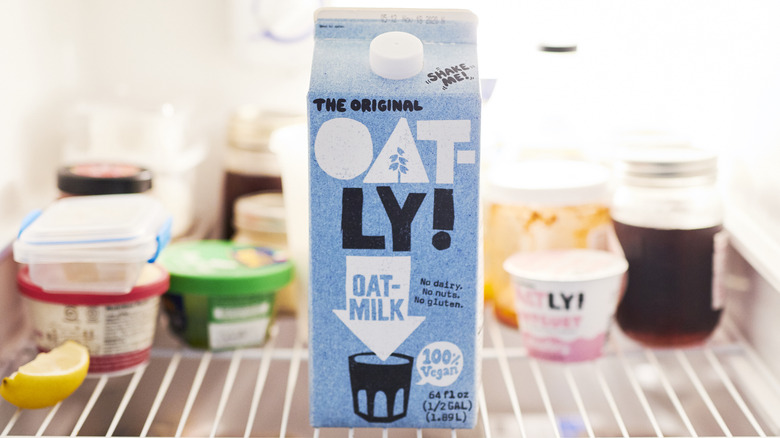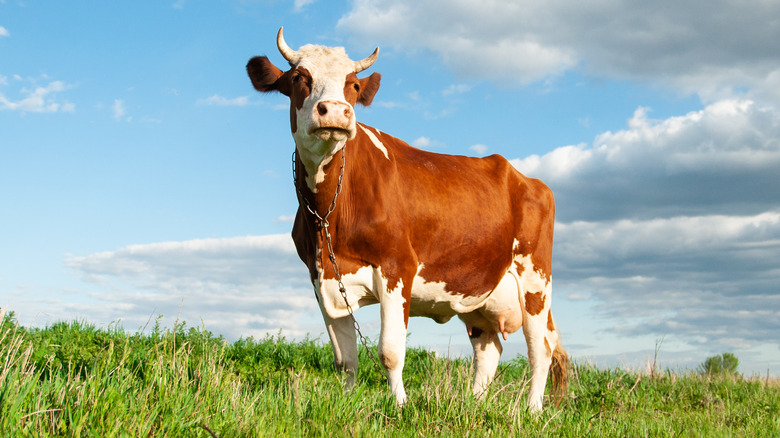The Surprising Ingredient That May Be Hiding In Your Oat Milk
On April 5, 2020, a tweet marveling over the revelations of a Medium article went viral. In the article, titled Oatley: The New Coke, Nat Eliason revealed that Oatley, the massive oat milk corporation, makes their products with, in the tweet's wording, "super sugar grain juice, cut it with canola oil." The takeaway of that reader was that Oatley made what sounds like an incredibly unhealthy drink, but managed to market it as an overall good.
Nutritionists, which Eliason is not, responded. One, writing for Insider, noted that while the piece was technically correct in that it listed the fact that maltose, a sugar contained in oats, is present, Eliason doesn't put that fact into nutritional context. That context is that oat milk naturally produces maltose, which on its own would raise your blood sugar levels, but other ingredients present offset that. Still, some like those with diabetes would have to be mindful of how they consume the product.
GQ goes further, noting the assumptions made by the piece. For example, although canola oil is indeed an ingredient, it doesn't necessarily contain the dreaded trans fat. Again, the article brings to the fore the need for a nutritional context in Eliason's piece. Namely, no, guzzling Oatly probably isn't good for you, but drinking it in the way most do won't destroy your health. It's fine, for example, to add it to your coffee. It's not the healthiest thing ever, as its ads may assert. But it's broadly fine.
Oat milk's value rests on its sustainability
The real value of oat milk, however, is that it serves as an alternative to cow's milk. In 2019, the BBC covered the various environmental impacts of dairy milk and its alternatives. In terms of greenhouse gases, land use, and water consumption, dairy milk is the worst by double in every category. Additionally, rice milk produces a good amount of emissions, and both it and almond milk require a lot of water, but compared to the amount consumed from a cow there's no real comparison.
Oat milk and soy milk are almost interchangeable, with oats producing less gases and soy requiring less land and water. Many may prefer soy milk over oat milk, for as Inverse lists, soy milk offers more protein and contains healthy fats and fibers without the added sugar of oat milk. However, milk really is an additive, so the overbearing focus on which you use matters little; no milk alternative will fix everything. That said, diets are not built from single food items, but a system of what one eats.

